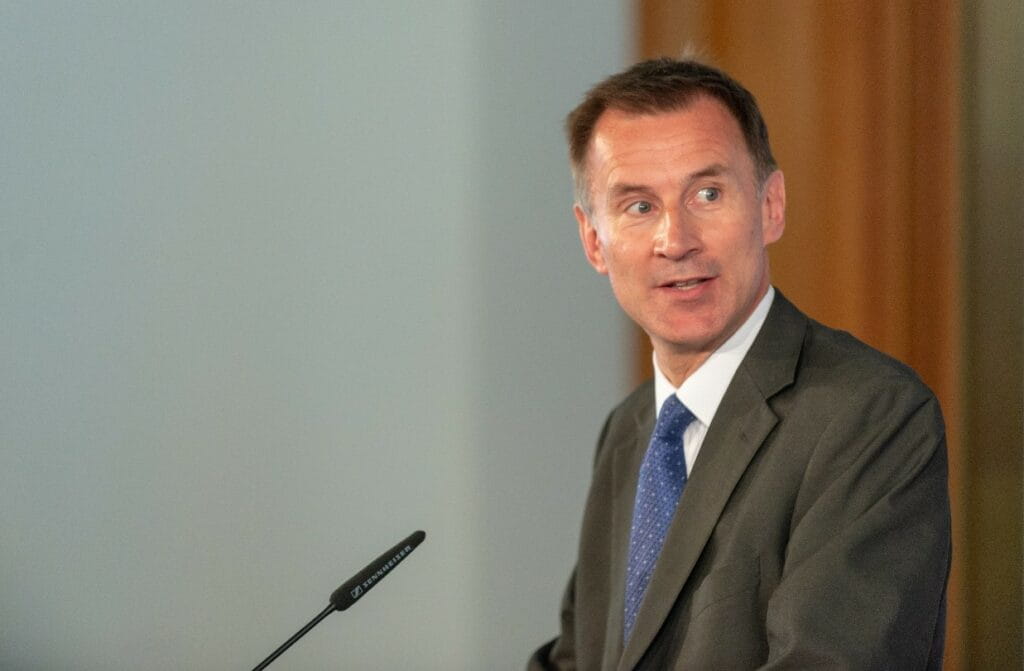Jeremy Hunts' first autumn statement
Jeremy Hunt has certainly been thrown in at the deep end. Just over a month into his new role as Chancellor, the former Health and Foreign Secretary had to deliver one of the most anticipated fiscal addresses for many years – but what was announced for the lettings sector?
His Autumn Statement set out the Government’s tax and spending plans less than two months after Kwasi Kwarteng’s ill-fated mini-Budget, which very quickly sounded the death knell for Trussonomics.
That disastrous mini-Budget, plus inflation pressures, Brexit, and the ongoing post-pandemic recovery, meant Hunt had a significant fiscal black hole to fill. He did this, as expected, through tax rises and spending cuts – something he labelled ‘consolidation’ – to the tune of £55 billion.
The Chancellor pointed to ‘unprecedented global headwinds’ at the beginning of his address to the Commons and insisted he was delivering a ‘plan to tackle the cost-of-living crisis and rebuild our economy’.
He also claimed that he would prioritise stability, growth and protecting public services, saying his plan would lead to a less severe downturn and higher long-term growth. He avoided the word recession, although the Office for Budget Responsibility said Britain was now in one.
There were also some surprising announcements from a property point of view, and lettings specifically. Here, we take a closer look.
Capital Gains Reduction
Hunt said that to help restore the public finances and make the tax system fairer, he would cut the tax-free allowance for capital gains in 2023-24 from £12,300 to £6,000 and then again to £3,000 in 2024-25.
Landlords looking to sell will be some of the hardest hit as capital gains tax (CGT) is charged much higher for residential property sales.
This may lead to a spike in sales as landlords try to beat the deadline before a decline if people hold off from selling their assets during unfavourable conditions.
Kwarteng's Stamp duty cut to be time-limited
In a surprise move which hadn’t been speculated on beforehand, the Chancellor announced plans to reverse the stamp duty cuts revealed in Kwarteng’s mini-Budget, stating that he will ‘sunset the measure’ from March 31 2025.
Kwarteng had, back in September, increased the nil rate threshold for stamp duty from £125,000 to £250,000, while the rate at which first-time buyers pay stamp duty on their purchases was upped to £425,000 from £300,000 on purchases worth up to £625,000.
The Treasury tweeted shortly after Hunt’s announcement that the cuts announced in the Growth Plan will now be time-limited, ceasing at the end of March 2025. “This is to help the jobs & firms that rely on the housing market through the current challenges while strengthening the public finances in the longer term,” it said.
Higher earners to pay more tax
Hunt announced that higher earners will start paying the top rate of tax (45%) when they earn £125,140, down from the present rate of £150,000. As a result, more landlords could be dragged into the top-paying tax bracket, which has implications for their profits on their rental homes.
It’s also a complete change from the measures Truss was keen to introduce – scrapping the top tax rate altogether – to allegedly make Britain more attractive for investment.
In addition, Hunt revealed that Inheritance Tax thresholds would be frozen for the next two years – leaving hundreds of thousands of homeowners liable to pay this tax.
What else was announced?
In a wide-ranging speech, Hunt re-committed the Government to its flagship levelling-up programme, confirming plans for Round 2 of the £1.7 billion levelling-up programme and more money for the devolved administrations. They will receive £3.4 billion over the next two years (with £1.5 billion for Scotland, £1.2 billion for Wales and £650 million for Northern Ireland.)
There will also be a new energy efficiency task force to reduce UK energy demand by 15% by 2030, as well as new mayors for Suffolk, Norfolk, Cornwall, and the North East of England.
Hunt also said the energy price guarantee would be extended, with unit prices capped, so average bills are no more than £3,000.
The Chancellor also set out plans for the National Living Wage to rise next year, rent increases in the social sector to be capped at 7%, and for benefits and pensions to rise in line with inflation rather than wages.
On a gloomier note, the OBR said that house prices could fall by 9% over the next two years, confirmed that Britain is in a recession (and will remain so for some time) and that government debt interest spending is up to the highest level since just after the second world war.
There was little about housing in Hunt’s speech, aside from the stamp duty and capital gains mentions, but the lettings sector will no doubt be irritated at yet another tax hike. And some may feel Hunt missed out on the opportunity to offer more of a carrot to the private rented sector, which plays an increasingly important role in housing a large population of the country.

